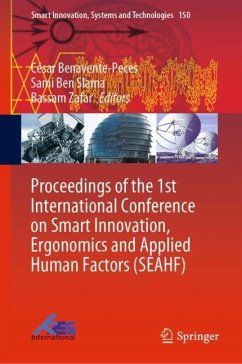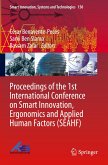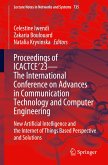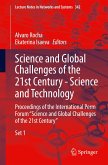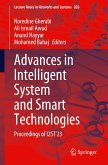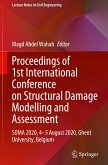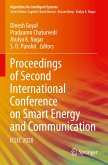This book addresses a range of real-world issues including industrial activity, energy management, education, business and health. Today, technology is a part of virtually every human activity, and is used to support, monitor and manage equipment, facilities, commodities, industry, business, and individuals' health, among others. As technology evolves, new applications, methods and techniques arise, while at the same time citizens' expectations from technology continue to grow.
In order to meet the nearly insatiable demand for new applications, better performance and higher reliability, trustworthiness, security, and power consumption efficiency, engineers must deliver smart innovations, i.e., must develop the best techniques, technologies and services in a way that respects human beings and the environment.
With that goal in mind, the key topics addressed in this book are: smart technologies and artificial intelligence, green energy systems, aerospaceengineering/robotics and IT, information security and mobile engineering, IT in bio-medical engineering and smart agronomy, smart marketing, management and tourism policy, technology and education, and hydrogen and fuel-cell energy technologies.
In order to meet the nearly insatiable demand for new applications, better performance and higher reliability, trustworthiness, security, and power consumption efficiency, engineers must deliver smart innovations, i.e., must develop the best techniques, technologies and services in a way that respects human beings and the environment.
With that goal in mind, the key topics addressed in this book are: smart technologies and artificial intelligence, green energy systems, aerospaceengineering/robotics and IT, information security and mobile engineering, IT in bio-medical engineering and smart agronomy, smart marketing, management and tourism policy, technology and education, and hydrogen and fuel-cell energy technologies.

